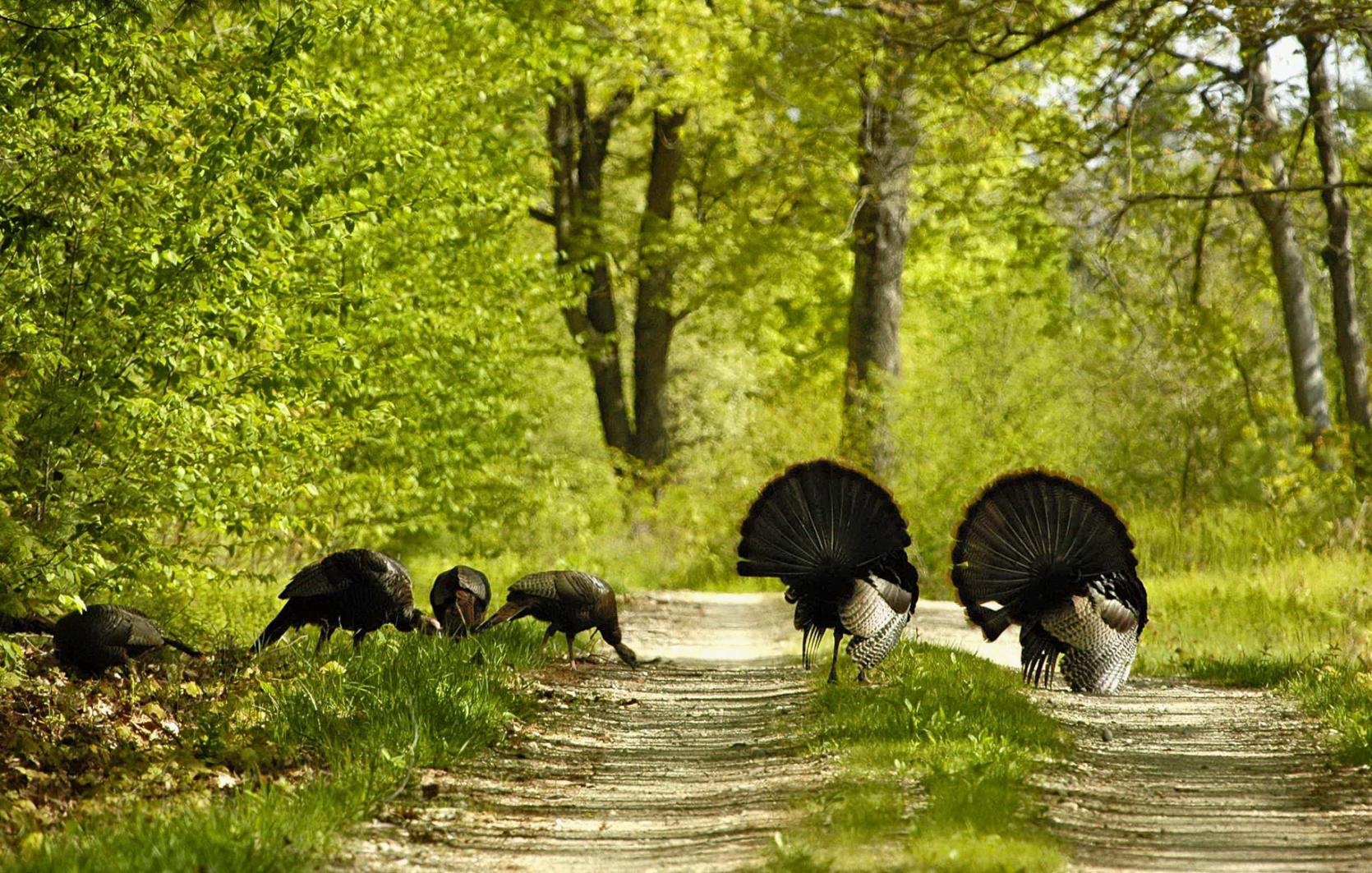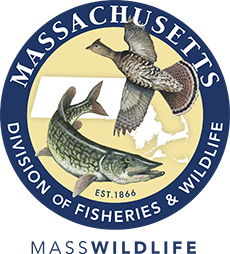- Division of Fisheries and Wildlife
Media Contact
Media Contact, MassWildlife

The days are growing longer, the fields are greening up, and the start of spring turkey hunting is just around the corner and runs from April 28–May 24. Whether you're a beginner hunter or a seasoned pro, you can find resources on this page to help you prepare for a safe and successful spring turkey season.
Regulations and harvest reporting
- Get your license and turkey permit. If you’re hunting wild turkeys in Massachusetts, you need a hunting or sporting license as well as a turkey permit. A turkey permit comes with 3 turkey tags. Hunters can take 2 bearded turkeys in the spring and 1 turkey of either sex in the fall. Buy online at MassFishHunt.mass.gov or at a license agent (click here for a map).
- Review turkey hunting regulations including hunting hours, bag limits, and allowable hunting implements.
Note: Significant changes were recently made to Massachusetts firearms laws and are now in effect. If you're planning to hunt with a firearm, please review updated guidance. - Successful hunters must report their turkeys within 48 hours of harvest. The easiest way to report a harvest is online. Click here to learn more about harvest reporting.
Hunting classes and learning resources
- Free turkey hunting skills classes are being offered this spring by MassWildlife and partners.
- The 2025 Youth Turkey Hunt is April 26. There is still time for Basic Hunter Education graduates to participate in the Youth Hunt. Learn about the Program and to register for an online or in-person seminar.
- Browse spring turkey hunting tips to learn more about pre-season scouting, using decoys, roosting birds, calls, and more.
- Make the most of your harvest with wild turkey meat preparation tips and recipes.
Turkey hunting safety
- Always follow the 10 basic rules of firearm safety.
- Be completely sure of your target and what is beyond it before you shoot. Always practice firearm safety.
- Don't stalk turkey sounds; it could be another hunter. Sit or stand and call the birds to you.
- Do not wear red, white, blue, or black; these colors are associated with male turkeys.
- Protect your back. Set up against a large tree or rock and make sure your view isn't obstructed. Don't hide in a place with an obstructed view.
- Do not place decoys too close to where you set up. Never carry an exposed decoy or tail fan while hunting; put them in a bag when carrying them in or out of hunting locations.
- Consider wearing hunter orange when entering or leaving your hunting area.
Avian flu safety for hunters
An avian flu known as Highly Pathogenic Avian Influenza (HPAI), has been detected in Massachusetts. While humans are rarely impacted, hunters are advised to take precautions. Both wild and domesticated birds can become infected with HPAI. Birds may be infected without showing signs of illness. Humans that have prolonged close contact with sick or dead birds infected with HPAI are the most at risk of becoming infected. The virus is shed from infected birds through bodily fluids, most commonly saliva, mucous, and feces. Inhaling those shed particles or contacting them and then touching the eyes, nose, or mouth can allow the virus to pass to humans. Take the following precautions when hunting this spring:
- Reporting and handling birds: Hunters should avoid handling any birds that appear sick or have been found dead. Report observations of sick or deceased birds if 5 or more birds are found at a single location using this simple form at mass.gov/reportbirds.
- Processing and cooking: Dress game birds in the field when possible. While eating wild game meat is generally considered safe, hunters can minimize risk from wildlife diseases by wearing gloves when dressing birds and washing hands with soap and water afterwards. Cook game meat to an internal temperature of 165°F to kill bacteria and viruses, including avian flu viruses. Click here for more information on best practices for processing and cooking wild game.
